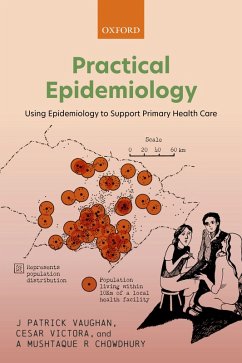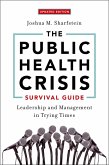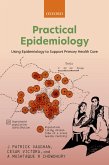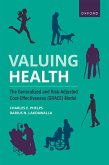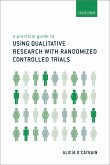Practical Epidemiology: Using Epidemiology to Support Primary Health Care builds on the successful Manual of Epidemiology for District Health Management, that was published by the WHO Geneva in 1989. This title focuses on the importance of using epidemiological concepts and skills by health workers in Lower and Middle Income Countries (LMICs), in particular to investigate, plan and deliver primary health care services and to strengthen district level public health programmes. It also includes illustrations and examples relevant to a hypothetical district population of 200,000 people. The book outlines the importance of the UN's Sustainable Development Goals (SDGs) and the World Health Organisation's principles for Universal Health Coverage (UHC) and then focuses on the role of district health systems in supporting national primary health care and the use of epidemiological and demographic information in the planning of local and national health services and programmes. Chapters include the collection of health information, outbreaks due to communicable diseases, use of investigations and health surveys, data analysis and statistics, and importance of communicating health findings and policies. Using a systems approach together with epidemiological methods it demonstrates how district health planning and primary health care can be strengthened and how progress can be monitored and evaluated, including for improvements in access, quality and coverage of health services and public health programmes. Ethical principles and tackling inequalities are considered throughout the book. A full chapter on the A B C of epidemiological definitions and terms is also included. This book will be particularly relevant for undergraduate and postgraduate university training courses for health professionals and for in-service short and revision courses for a wide range of health workers.
Dieser Download kann aus rechtlichen Gründen nur mit Rechnungsadresse in A, B, BG, CY, CZ, D, DK, EW, E, FIN, F, GR, HR, H, IRL, I, LT, L, LR, M, NL, PL, P, R, S, SLO, SK ausgeliefert werden.

